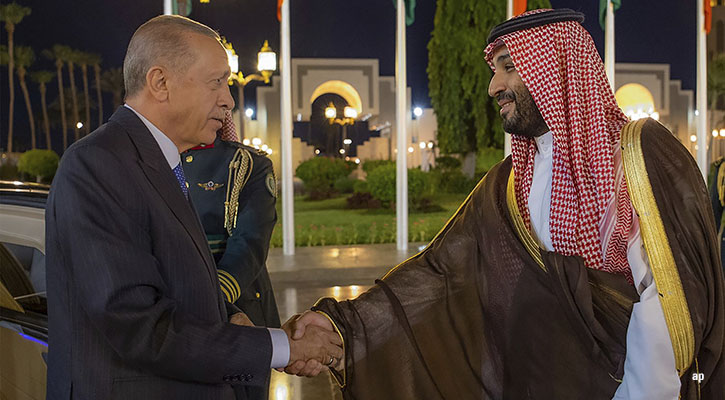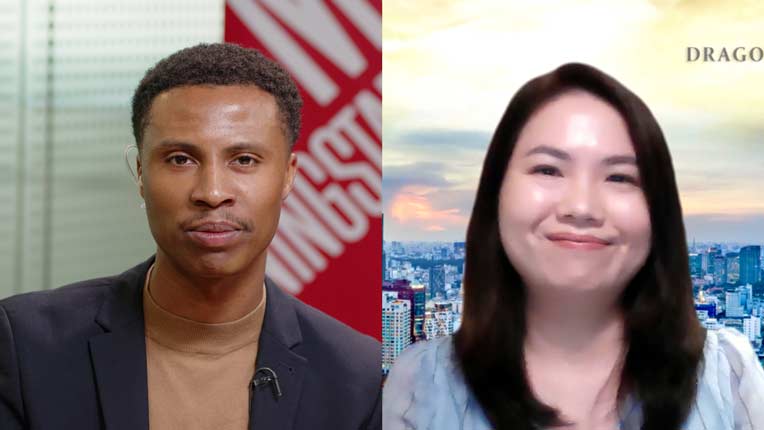
In a previous article, I looked at India's EM battle with China and the problems passive investors face in gaining exposure to EM indices. But what's going on in the real world? If investing is a way of framing global affairs, the brutal pragmatism of geopolitics is another.
After the Russian invasion of Ukraine, an alternative way of looking at the world is through the lens of "influence".
Certainly that is South Africa’s plan as it convened a meeting in late August to expand the BRICS, a very dated acronym coined 20 years ago to describe Brazil, Russia, India, China and South Africa (of which more from my colleague Sara Silano later this week).
The latter is very much the poor relation in this quintet but it’s trying to revive the idea of a bloc to take on the G7, tempting ambitous Saudi Arabia to make it the BRICSS.
This approach will dismay investors who support globalisation because it pits the West against the rising emerging world. Other potential new BRICS members include Argentina, Iran, UAE, Saudi Arabie, Ethiopia, and Egypt. The resulting acronym is the least of our worries.
The background to this conference is that South Africa is very much on the west's naughty step after being accused of selling arms to Russia. But it wouldn't be the only thing western powers are worried about.
Oil cartel OPEC, which sets oil prices, has long operated as part of the global financial system, and boasts regimes like Venezuela, Iraq and Iran within its influence. The geographical specifics of where the oil is has long been part of the west's drive to diversify its energy supply, though Russia's war in Europe showed just how fragile the status quo truly was.
Back in the investing world, ESG investors have an interest in this too – via renewables.These kinds of polarised power bases are nothing new in world history – think of the Cold War idea of "spheres of influence" – but the US political establishment will be dismayed at the divergence of Africa’s largest economy from the fold.
And Around We Go Again
"Influence" is very much on the agenda of the Amundi Institute, which published a report on geopolitics in June. Its "best case scenario" is that China could reinvent itself as a peacebroker between Russia and Ukraine and move back into the West’s good books.
The report highlights three types of winners from the new alignment, such as influence winners (India, Saudi, Turkey), diversification winners (South East Asia and Africa) and then defence winners such as Australia and Japan. There’s a broad spread of countries here that could be captured by an EM or frontier fund.
If you are a fan of co-operative global growth, however, Amundi may curb your enthusiasm.
"The geopolitical realignment has far-reaching implications for businesses," it says.
"It increases the prevalence of economic warfare, sanctions and the exploitation of natural resources for geopolitical clout. Protectionism and national industrial policies will rise, undermining cooperation between countries."
To come full circle, what if I want some of this growth but I don’t want to invest in a long list of regimes I abhor?
Thankfully, the exchange-traded fund industry is forever evolving so can now offer the EM investor "ex-" China funds. EM funds with an ESG tilt are also growing in popularity.
They will have to do a lot of screening to filter out Russia, Saudi Arabia, and others, and investors may have to sacrifice some returns if they want to stay on the right side of their consciences. But it's either that or your home market or US equities, which would land you right back where you started. As they say: history rhymes...











:quality(80)/cloudfront-us-east-1.images.arcpublishing.com/morningstar/K37XP2B425AIRFXOASS7WIGPLM.jpg)
















